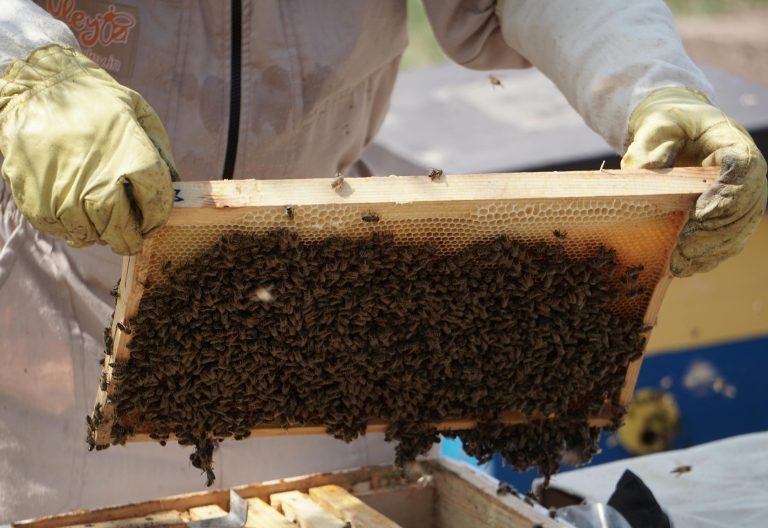Farmers told to tap into beekeeping as demand for honey skyrockets

As demand for honey in the country continues to rise due to its wide usage as food, medicine and the manufacture of beauty products, Kenyans have been urged to adopt beekeeping for more income to support their families. With the crippling of Kenya’s economy, experts told farmers to embrace bee farming as an alternative source of income to sustain their livelihoods.
Speaking in Gathaiti village, Gatundu North during a farmers’ graduation ceremony, the experts stated that honey has great demand both locally and internationally and farming bees can eradicate poverty in the villages
Beekeeping training
The farmers underwent a four-day beekeeping training organised by the Rosemary Kirika Foundation, a family-oriented organisation that has been empowering and supporting rural families out of poverty.
Led by Trizah Okecha, an agronomist from the Ministry of Agriculture and Livestock Development, they stated that bees not only produce honey but are also pollinators which play a critical role in maintaining a healthy, genetically diverse ecosystem of plants, adding that beekeeping can also help mitigate climate change by pollinating crops and protecting property.
“Bees are important to the environment and to humans because they pollinate plants, produce food, and provide other products. There is a high demand for honey against what we produce and this makes beekeeping a significant opportunity that farmers can leverage on to make a fortune,” she stated.
Recent statistics show that demand for honey has been rising annually. Kenyans have been producing around 20,000 tonnes yearly against the current yearly demand of about 100,000 tonnes. Kiambu Deputy Governor Rosemary Kirika attributed low production in the country to use of traditional production methods such as using log hives alongside inadequate infrastructure
While insisting that beekeeping could be a game changer for farmers who undertake the farming seriously, Kirika added that farmers also need continuous sensitization to practice bee farming in a modernised way for maximised profits.
“Kenyans have been keeping bees but in a traditional way and that is why we are training them to practice this type of farming professionally.
The demand for honey and hive products is currently very high and this is simply to say that the market is ready to consume everything produced,” she stated.
On their part, farmers told journalists that beekeeping has become a gold mine that they hope will turn around their economic status. They vowed to venture into commercial farming of bees, saying that the four day training has opened a new chapter in their wealth creation journey.











